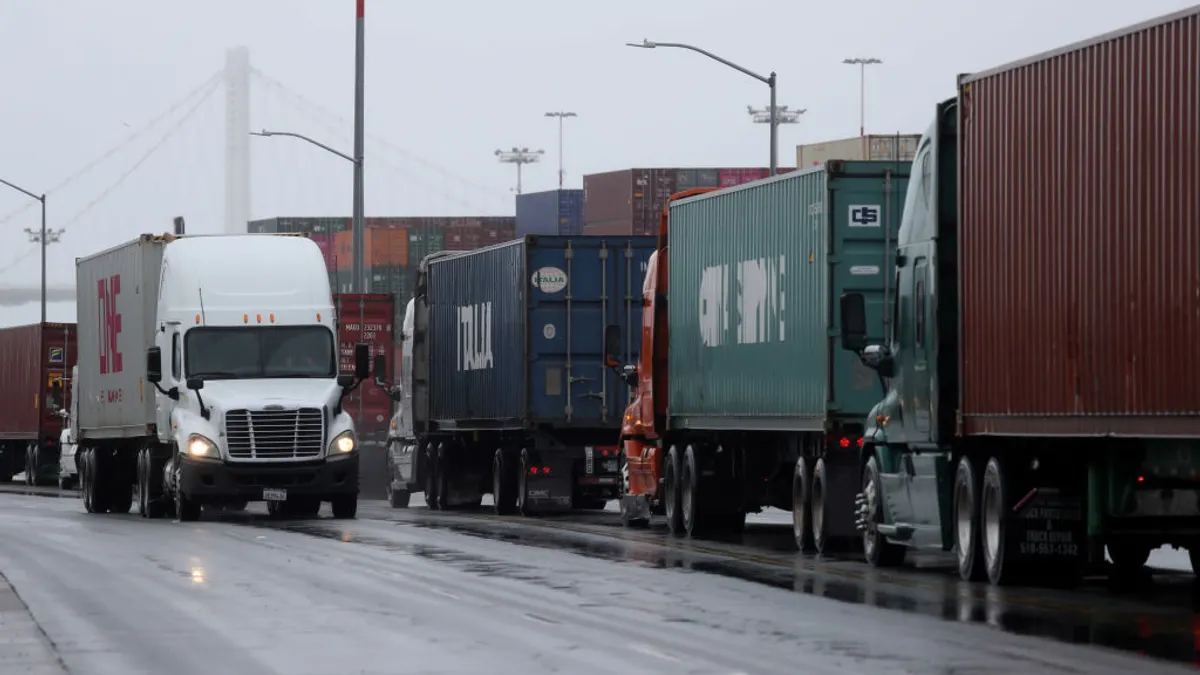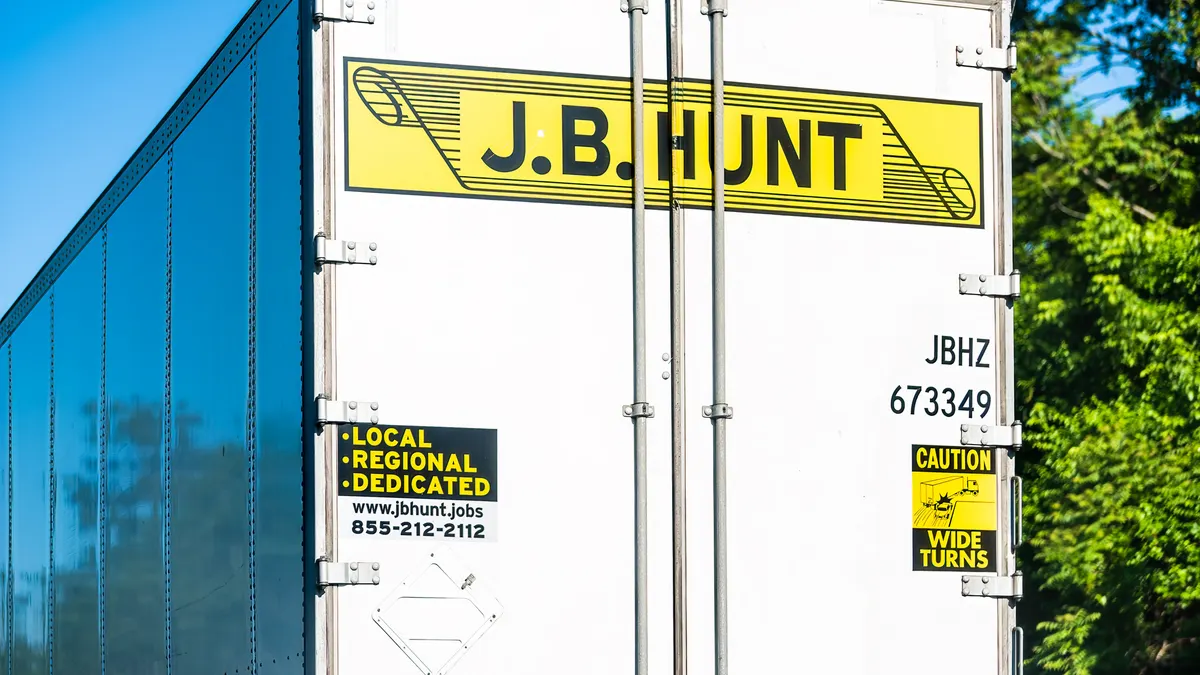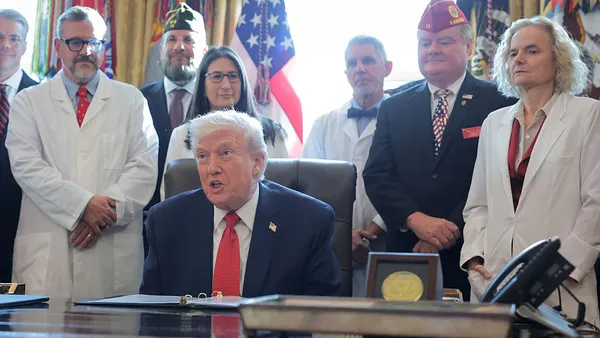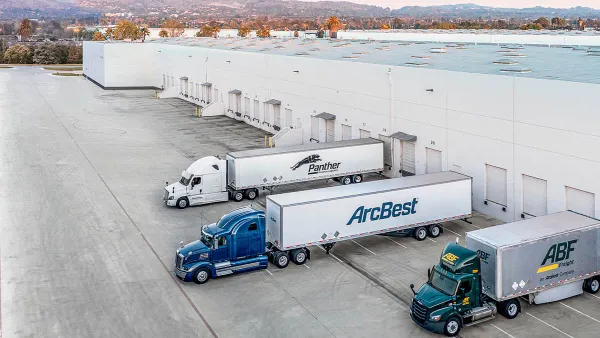Dive Brief:
- As employers plan for reopening, the Occupational Safety and Health Administration (OSHA) "generally recommends that employers encourage workers to wear face coverings at work," it said in a June 10 guidance.
- Employers may decide whether to implement rules based on circumstances, OSHA said, pointing out that masks can sometimes create a hazard, conflict with other required equipment or create a barrier to accessible communication. In such situations, an employer could allow face shields or clear partitions, it said.
- Because cloth face coverings aren't viewed as providing protection against exposure to occupational hazards, OSHA's standards do not require employers to provide them, the agency said.
Dive Insight:
With drivers transporting loads in and around areas that could hold high risk for virus transmission, trucking firms have been working for months to get sufficient personal protective equipment (PPE) for drivers and staff.
Though drivers naturally self-isolate as they spend hours on the road in their cabs, door handles, restaurant tables and other high-touch surfaces have had fleets and their trainers reaching out to drivers to discuss best practices.
Outside resources have also become available to fleets. Last month, the FMCSA announced it was giving 1 million masks to truck drivers. The American Trucking Associations (ATA) and state affiliates have also helped distribute PPE to drivers. And some fleets are designing protective equipment. Charlotte Solid Waste Services in North Carolina, along with an engineering team, designed partitions for crews safe riding side by side.
As employers devise reopening plans, masks are just one factor to consider. Many are banking on temperature screening and on-site testing as part of contact tracing efforts. Some are redesigning workspaces to allow for social distancing and improve ventilation, at the direction of the Centers for Disease Control and Prevention; others say a vast number of workers will continue to work remotely for the foreseeable future.
Regardless of a plan's details, timely and transparent communication is key, experts say. "Employees would rather their employer help prevent the spread of disease than be left in the dark," Sirmara Campbell, chief human resources officer at LaSalle Network, a national staffing and recruiting firm, recently told Transport Dive sister publication HR Dive in an interview. "If employers communicate effectively and employees know their organization is looking out for their health and wellbeing, they will be grateful for the transparency."










